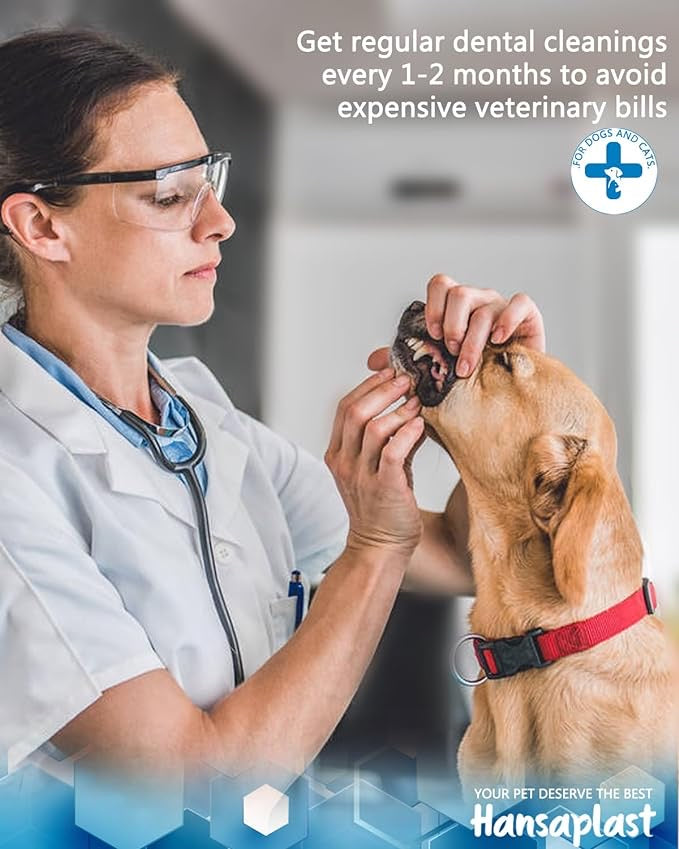As pet owners, we often focus on the most visible aspects of our furry friends' health—nutrition, exercise, and routine veterinary check-ups. However, one crucial area that frequently gets overlooked is the pet dental health. Just like humans, pets can suffer from a range of dental issues, many of which can lead to severe health problems if left untreated . This is where a dental scaler comes into play, helping to ensure that our pets’ teeth remain clean and healthy.
## What is a Dental Scaler?
A dental scaler is a specialized instrument used by veterinarians and pet dental hygienists to remove plaque and tartar buildup from pets’ teeth. These tools come in various shapes and sizes, and they can be manual or ultrasonic. While manual scalers require physical effort to scrape off debris, ultrasonic scalers use high-frequency vibrations to break down and remove plaque.
## Why is Dental Scaling Important?
1. **Preventing Periodontal Disease**: Periodontal disease is among the most common health issues faced by pets. It starts with gingivitis and, if left untreated, can progress to periodontitis, leading to tooth loss and even bacterial infections that can affect other organs, such as the heart and kidneys.
2. **Maintaining Fresh Breath**: Bad breath, or halitosis, is often a sign of dental decay or disease. Regular scaling can help eliminate odor-causing bacteria and keep your pet’s breath smelling fresh.
3. **Improving Overall Health**: Oral health is interconnected with overall health. Infected gums can allow bacteria to enter the bloodstream, potentially leading to serious health issues like heart disease and kidney problems. By maintaining your pet's dental hygiene, you contribute to their overall well-being.
4. **Preventing Pain and Discomfort**: Just like humans, pets can experience pain from dental problems. Scaling helps prevent painful conditions that can affect your pet's ability to eat, play, and enjoy life.
## How Often Should You Scale Your Pet's Teeth?
The frequency of dental scaling can vary depending on several factors, including your pet's age, diet, and predisposition to dental disease. Generally, routine dental check-ups should be part of your pet's annual veterinary visit, but pets that are prone to dental issues may require more frequent cleanings.
For dogs and cats, it’s recommended that dental scaling be done at least once a year. However, pets that experience issues like persistent bad breath, gum inflammation, or noticeable tartar build-up may require more frequent attention.
## Caring for Your Pet's Teeth at Home
While professional dental scaling is essential, maintaining your pet's dental health at home is equally important. Here are some tips for pet dental care:
1. **Regular Tooth Brushing**: Brush your pet's teeth with a toothbrush and toothpaste formulated specifically for pets. Aim for at least two to three times a week, if not daily.
2. **Dental Chews and Toys**: Provide dental chews and toys designed to reduce plaque. These can help promote oral health while keeping your pet entertained.
3. **Routine Vet Check-ups**: Schedule regular veterinary visits for dental check-ups and cleanings. Your vet can provide personalized advice based on your pet's specific needs.
4. **Watch for Warning Signs**: Keep an eye on your pet’s dental health. Signs of dental issues can include difficulty eating, excessive drooling, pawing at the mouth, or changes in behavior. If you notice these symptoms, consult your veterinarian immediately.
Conclusion
Dental scaling is an essential component of your pet's healthcare routine that should not be overlooked. By investing in your pet's dental health, you not only improve their quality of life but also contribute to their longevity. Regular dental scaling, coupled with at-home care, will help ensure your beloved companion maintains a healthy, happy smile for years to come. So, take that extra step to care for your pet’s teeth—after all, they deserve the best care possible!



Share:
Cozy Banana Cat Bed